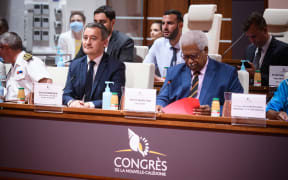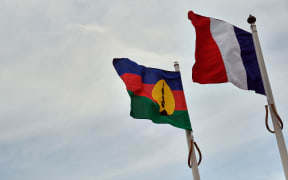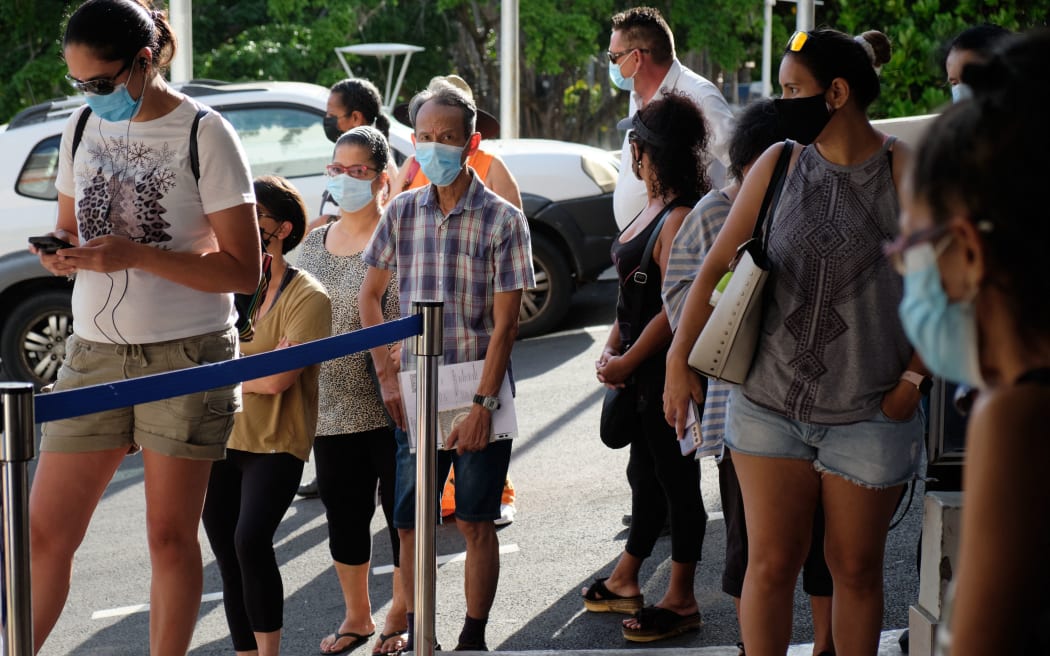
A majority of New Caledonians rejected independence from France Photo: Theo Rouby / AFP
A French law professor says it is up to the French people as a whole, and not the voters in New Caledonia, to decide the future statute of New Caledonia.
Eric Descheemaeker of the Melbourne Law School said New Caledonia's three votes against full sovereignty mean that legally, the power to determine the future standing of the Pacific territory has reverted from New Caledonian voters to France as a whole.
In the three referendums between 2018 and 2021, a majority of New Caledonians rejected independence from France.
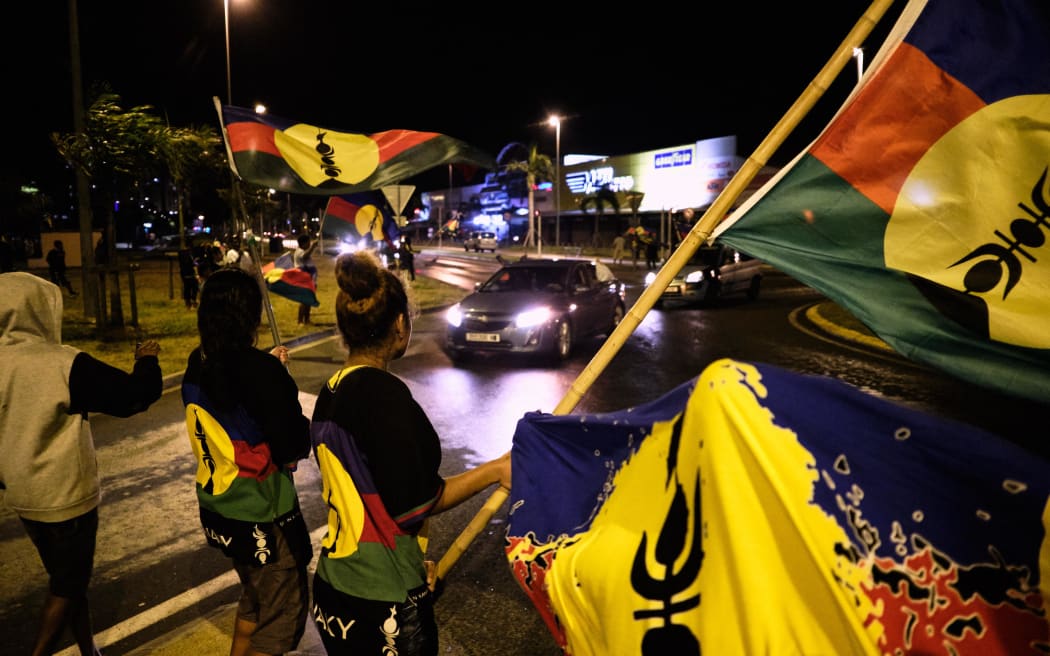
A majority of Kanaks boycotted the last referendum Photo: AFP or licensors
However, the last and third referendum under the 1998 Noumea Accord was boycotted by the pro-independence parties after France refused to postpone the vote to 2022 because of the pandemic's impact on the indigenous Kanak population.
The pro-independence FLNKS has been adamant that it won't recognise the referendum outcome, describing it as a humiliation of the Kanak people.
Amid the political fallout, Descheemaeker said in an article in Jus Politicum that the French constitutional framework still applied.
He said the rejection of the proposed sovereignty meant that New Caledonia was subject to the the French constitution with its definition of national sovereignty.
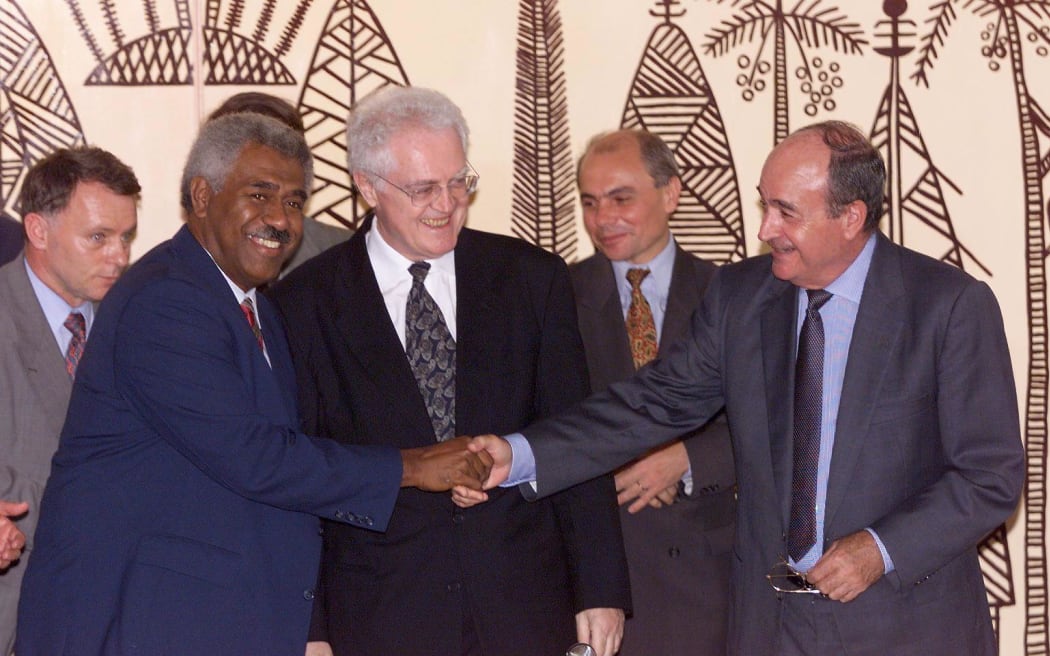
French Prime Minister Lionel Jospin (C) watches with Roch Wamytan, president of the separatist Kanak Socialist National Liberation Front (FNLKS) (L) and Jacques Lafleur, president of the loyalist Rally for Caledonia in the Republic (RCPR), after the signature of their historic accord in Noumea in 1998. Photo: AFP
The text says 'no section of the people nor any individual may arrogate to itself, or to himself, the exercise thereof'.
Descheemaeker also said the referendum process granted by Paris was not binding because a vote for independence would still have had to be approved by the French legislature and in a referendum.
He said the 1988 referendum involving all of France approved the Matignon Accords that paved the way for a vote on independence in New Caledonia within ten years.
It didn't take place, and political leaders deferred a decision by signing the Noumea Accord in 1998, which extended the deadline by another two decades.
Descheemaeker said with the referendum outcome, the provisions from 1988 could no longer be used to claim a separate entitlement for voters in New Caledonian, similar to there not being one for Parisians.
The political discussions are due to resume later this month once the pro-independence FLNKS movement, which is a signatory to the Noumea Accord, has held its congress.
Formal talks on a new statute are yet to be launched, but speaking in the French National Assembly last month, interior minister Gerald Darmanin ruled out any further voting on the issue for five years.
Days after the last referendum in 2021, the then-overseas minister Sebastien Lecornu said he planned to have a vote in New Caledonia on a new statute by June 2023.
But amid the political impasse and the absence of any substantive talks, the undertaking was scuttled.
The pro-French parties have said with a new statute the restricted electoral rolls, which were brought in as part of the Noumea Accord process, must be opened to all French citizens.
Reserving voting rights in referendums and provincial elections to long-term residents and indigenous Kanaks, more than 40,000 French residents now lack full voting rights, being allowed to vote in French national elections only.
Descheemaeker said although there was no specific expiry date to the restrictions in New Caledonia, they would have to be reviewed.
He said the partial withdrawal of the right to vote from certain French citizens living in New Caledonia was contrary to the most fundamental constitutional principles.
He said the measures had only been validated by French and international authorities insofar as they were transitional.
Pro-independence parties are opposed to changing the rolls.
For them, the ringfencing of the electorate was an irreversible gain attained through the Noumea Accord.
They say this form the bedrock of the New Caledonian citizenship and identity as they pursue their campaign for an independent New Caledonia, which has been on the UN decolonisation list since 1986.
